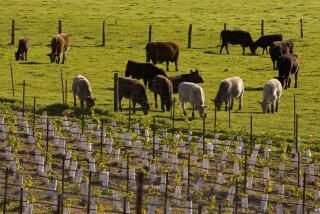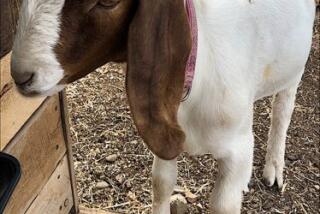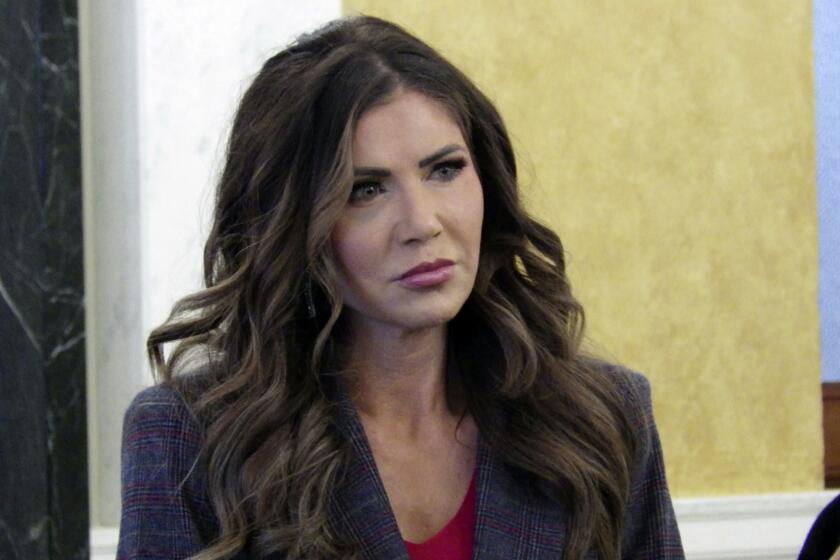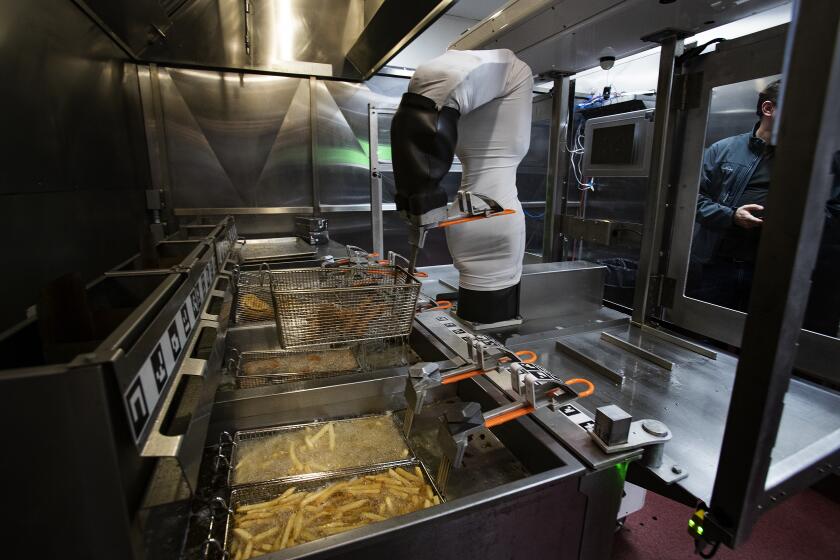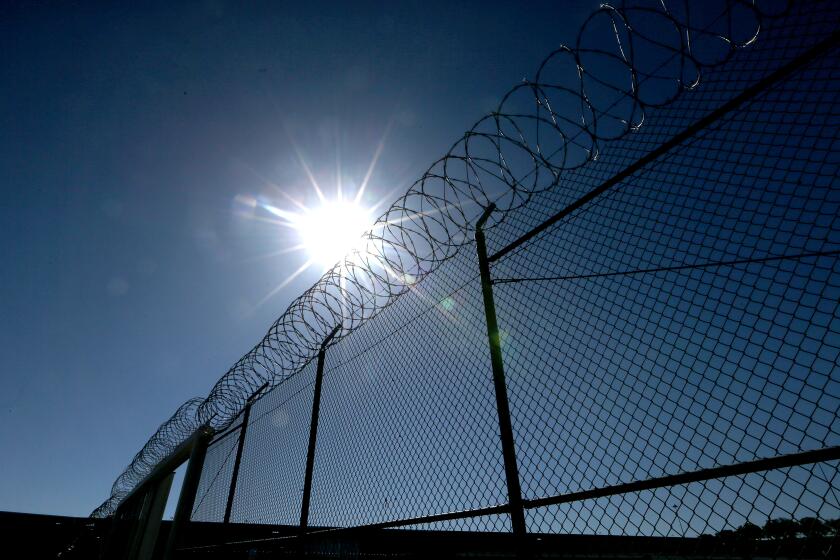Op-Ed: Foie gras is a product of cruelty
In early January, a federal judge overturned a decade-old California law that took effect in July 2012. The law banned the sale of foie gras,
a French “delicacy” that is almost always the result of grossly inhumane treatment of ducks or geese.
The judge ruled that the California ban was unconstitutional because it conflicted with the Poultry Products Inspection Act, a federal law that regulates poultry ingredients and labeling.
We at Farm Sanctuary cosponsored the original law and have been involved in defending the ban against legal challenges. Until this most recent ruling, we’ve been successful at every turn — and we were blindsided by this reversal.
Foie gras, French for “fat liver,” is created by cramming pipes down the throats of ducks and geese to enable force-feeding and, in just two to three weeks, cause their livers to grow as much as 1,000% or more, according to the book “The Foie Gras Wars.”
I hope you’re asking yourself “What does this horrific approach to fattening a liver have to do with ingredients and labeling?” Good catch. The animal protection community is wondering the exact same thing, and the answer — absolutely nothing — is why we’re completely certain that the U.S. 9th Circuit Court of Appeals will overturn the ruling.
Though we’re confident of eventual legal victory, we have been stunned by some of the reaction to the foie gras issue voiced by people and venues that should — we think — know better.
The two main arguments that we hear: Force-feeding does not necessarily involve egregious cruelty to animals, and animal activists are picking on foie gras because it’s a luxury food. Our time would be better spent on other factory farming issues, critics say. Both arguments are foie gras industry talking points, and both arguments are wrong.
It is objectively untrue that force-feeding can be done without cruelty, and there is absolutely no scientific support for this contention. In fact, science proves what intuition would indicate — that the force-feeding process and the effect on the animals’ livers causes immense suffering.
A report on foie production by the European Union’s Scientific Committee on Animal Health and Animal Welfare found that death rates during force-feeding skyrocket as much as 2,000%. Any process that kills that many animals over just two to three weeks has to result in abject misery for all of the animals.
The unanimity of the scientific evidence is why every disinterested body that reviews force-feeding has found the process to be cruel.
For example, the Pew Commission on Industrial Farm Animal Production, which included farmers, a former secretary of Agriculture and a former Kansas governor, reviewed the science and in 2008 recommended putting an end to the process. Five years earlier, the Israeli Supreme Court reviewed the evidence and ruled that foie gras production violates the country’s anti-cruelty statute.
There are no examples of studies concluding otherwise, which is why foie gras production is illegal in more than a dozen countries.
The second claim — that animal protection groups are picking on foie gras to the exclusion of more important factory farming issues — indicates a profound lack of research. Every group that works to ban foie gras is far more active on other animal farming efforts. Farm Sanctuary was instrumental to the passage of California’s Proposition 2, which bans confinement systems for hens, sows and calves. Foie gras takes a fraction of our time.
But more important, it is morally untenable to even suggest that animal advocates should ignore the 600,000 animals that will be abused for foie gras in the United States this year. By that reasoning, all animal protection groups should stop working to close down dogfighting rings — after all, there are exponentially fewer animals suffering in that loathsome activity than in the production of foie gras.
The force-feeding of animals supports shocking cruelty to animals, and it justifiably earns the scorn of animal advocates around the world. In banning the sale of foie gras more than a decade ago, California got it right. It is a product of cruelty, and kind people everywhere should stop singing from the foie gras industry’s songbook.
Bruce Friedrich is director of policy for Farm Sanctuary, a national farm animal protection organization.
Follow the Opinion section on Twitter @latimesopinion
More to Read
A cure for the common opinion
Get thought-provoking perspectives with our weekly newsletter.
You may occasionally receive promotional content from the Los Angeles Times.

